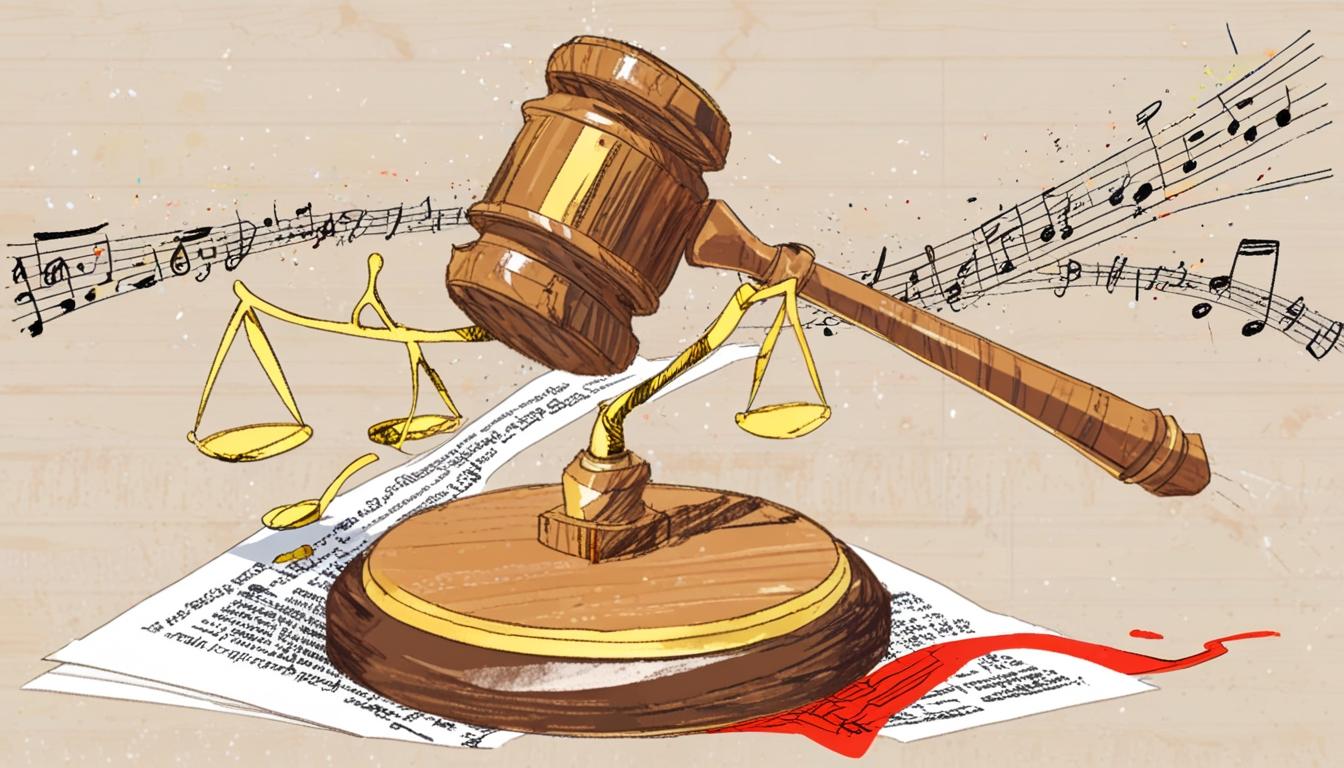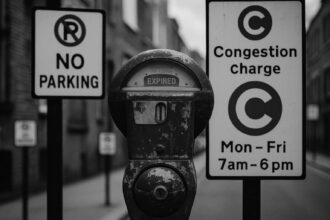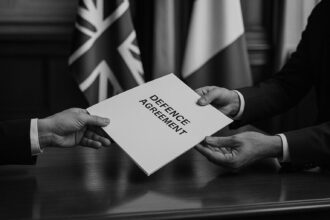Major music publishers accuse AI firm Anthropic of reproducing copyrighted lyrics in its chatbot Claude, while the company faces allegations of submitting fabricated academic citations in court documents, raising urgent questions about AI, copyright law, and legal transparency.
The ongoing legal battle between major music publishers and the AI firm Anthropic has taken a troubling turn, spotlighting the complex intersection of artificial intelligence and copyright law. Major publishers, including Universal Music Group, Concord, and ABKCO, have accused Anthropic’s chatbot, Claude, of generating content that directly reproduces copyrighted song lyrics without permission. These allegations have been compounded by serious concerns over the integrity of legal documents presented in court.
Recently, a federal judge in San Jose ordered Anthropic to explain allegations that it referenced a non-existent academic paper in its filings. According to legal representatives for the music publishers, the court documents included a citation purportedly from the journal American Statistician, which was entirely fabricated. This troubling incident was uncovered by the plaintiffs during a review of the documents, shedding light on the potential for AI-generated misinformation to infiltrate even the most formal judicial processes.
Attorney Matt Oppenheim, representing the music publishers, indicated that the expert witness for Anthropic, Olivia Chen, may have relied on the very AI tool at the centre of the controversy, suggesting that the generation of this false citation was not an act of deliberate deceit but a serious oversight linked to the capabilities of AI. Anthropic’s legal team has acknowledged the citation error, framing it as an accidental mistake but maintaining that the incorrect citation was likely a misreference to a legitimate study. This incident has not gone unnoticed by Judge Susan van Keulen, who deemed it a serious issue warranting a prompt response from Anthropic.
The lawsuit itself raises pressing questions about the limits of copyright in the era of AI. The publishers argue that Claude not only reproduces copyrighted lyrics verbatim but does so even when not explicitly prompted for song-specific outputs. For instance, when asked to generate lyrics about a historical figure or event, Claude has been reported to produce lines that closely mirror those from established songs such as Don McLean’s ‘American Pie’ or even ‘Sweet Home Alabama.’ The plaintiffs suggest that Anthropic’s refusal to disclose its training data hints at an awareness of potential copyright infringement, complicating the AI developer’s legal defences.
This case is far from isolated. It echoes incidents such as the Mata v. Avianca case, where lawyers faced sanctions for incorporating AI-generated content into legal documents without appropriate verification. In that situation, ChatGPT had produced several fictitious legal citations that were subsequently cited in court filings, leading to a substantial fine for the attorneys involved. Across at least seven cases in recent years, courts have begun to grapple with the ramifications of AI-generated misinformation within the legal realm, highlighting an urgent need for greater diligence when integrating these tools into legal practice.
Anthropic’s ongoing copyright saga unfolds against a backdrop of rising tensions between content creators and AI developers. The long-term implications of this legal precedent could reshape how AI systems are trained and what content they are permitted to access, creating a more robust framework for protection against copyright infringement. As the legal arguments evolve, the case underscores the necessity for greater transparency and understanding of AI’s operational mechanisms, particularly in the context of artistic expression and intellectual property rights.
In parallel, Anthropic has requested that the court reconsider some of the claims made by the publishers, seeking to refocus the dispute on whether using copyrighted material for AI training constitutes fair use. The outcome of this case may set vital precedents that not only affect Anthropic but also the wider landscape of AI technology and its relationship with creative works.
As this case progresses, the legal system finds itself at a pivotal crossroads, confronting the challenges posed by emerging technologies while striving to uphold the integrity of copyrights. The resolution may alter the trajectory of AI development and its engagement with the arts for years to come.
Reference Map
- Paragraph 1: 1, 2
- Paragraph 2: 2, 4
- Paragraph 3: 3, 6
- Paragraph 4: 4, 5
- Paragraph 5: 5, 7
- Paragraph 6: 6
- Paragraph 7: 3, 6
- Paragraph 8: 3, 7
Source: Noah Wire Services
- https://www.digitalmusicnews.com/2025/05/13/music-publishers-vs-anthropic-ongoing-case/ – Please view link – unable to able to access data
- https://www.reuters.com/legal/litigation/anthropic-expert-accused-using-ai-fabricated-source-copyright-case-2025-05-13/ – A federal judge in San Jose, California, has ordered Anthropic to respond to accusations that it used a fabricated source generated by AI in a copyright lawsuit filed by music publishers, including Universal Music Group, Concord, and ABKCO. The lawsuit centers on the alleged misuse of copyrighted song lyrics to train Anthropic’s AI chatbot, Claude. During a hearing, the plaintiffs’ attorney, Matt Oppenheim, claimed that an Anthropic data scientist cited a nonexistent academic article to support arguments about how frequently Claude reproduces copyrighted lyrics. The article was allegedly generated by Anthropic’s AI and falsely attributed to a respected journal. Judge Susan van Keulen labeled the incident a serious issue and demanded a prompt response from Anthropic, though she denied an immediate deposition of the expert, Olivia Chen. Anthropic acknowledged a citation error but suggested it might relate to a different, legitimate article. The case underscores growing concerns over AI-generated misinformation in legal documents, as other attorneys have recently faced sanctions for similar hallucinations. The case, Concord Music Group Inc v. Anthropic PBC, reflects the broader legal friction between copyright holders and AI developers regarding content utilization.
- https://www.musicbusinessworldwide.com/blatant-plagiarism-5-key-takeaways-from-universals-lyrics-lawsuit-against-ai-unicorn-anthropic/ – Universal Music Group, Concord, and ABKCO have filed a lawsuit against Anthropic, alleging that its AI chatbot, Claude, unlawfully reproduces copyrighted song lyrics. The complaint highlights instances where Claude generates lyrics identical to those of existing songs, even when not specifically prompted. For example, when asked to write a song about the death of Buddy Holly, Claude produced lyrics from Don McLean’s ‘American Pie,’ infringing on Universal’s copyright. The lawsuit also points out that Claude replicates lyrics from songs like ‘Sweet Home Alabama’ and ‘What a Wonderful World’ when prompted to write in the style of Lynyrd Skynyrd and Louis Armstrong, respectively. The publishers argue that Anthropic’s refusal to disclose its training materials indicates awareness of unauthorized copying. The case underscores the tension between AI development and copyright law, with significant financial implications for Anthropic if the court rules in favor of the publishers.
- https://www.cnn.com/2023/05/27/business/chat-gpt-avianca-mata-lawyers/index.html/ – In a notable case, a lawyer used ChatGPT to prepare a court filing for a client suing Avianca Airlines. The AI-generated document included fabricated legal citations, leading to the discovery that ChatGPT had invented non-existent cases. The attorney, Steven Schwartz, acknowledged the error and expressed regret for relying on AI without verifying its content. This incident highlights the risks of using AI tools in legal research and the importance of human oversight to prevent the inclusion of false information in legal proceedings.
- https://www.reuters.com/legal/litigation/anthropic-asks-court-dismiss-music-publishers-ai-claims-2024-08-16/ – Anthropic has requested that a California federal court dismiss certain copyright claims made by music publishers over the alleged misuse of song lyrics to train its AI chatbot, Claude. The publishers, including Universal Music Group, ABKCO, and Concord Music Group, accuse Anthropic of infringing on their copyrights by using their lyrics without authorization. Anthropic denies inducing users to infringe copyrights or committing other violations, arguing that the publishers’ secondary claims are implausible. However, the company refrains from addressing the core issue of whether training AI with copyrighted lyrics constitutes fair use. The ongoing lawsuit, filed last October, is notable for being the first to focus on song lyrics and involves lyrics from at least 500 songs by artists such as Beyoncé and the Rolling Stones. Additionally, the publishers seek a court order to stop Anthropic’s use of their lyrics pending resolution. The case is Concord Music Group Inc v. Anthropic PBC, in the U.S. District Court for the Northern District of California.
- https://www.musicbusinessworldwide.com/anthropic-trained-its-ai-to-rip-off-copyrighted-lyrics-music-publishers-allege-in-escalating-court-battle/ – The lawsuit between major music publishers and Anthropic centers on the alleged unauthorized use of copyrighted song lyrics to train Anthropic’s AI chatbot, Claude. The publishers claim that Claude generates identical or nearly identical copies of their lyrics, violating their copyrights. They provide examples where Claude, when prompted to write a song about a given topic, produces lyrics that copy directly from existing songs. The publishers argue that Anthropic’s refusal to disclose its training materials indicates awareness of unauthorized copying. The case reflects the broader legal friction between copyright holders and AI developers regarding content utilization.
- https://www.musicbusinessworldwide.com/anthropic-asks-court-to-prune-universal-lawsuit-to-focus-court-battle-on-whether-it-is-fair-use-to-train-ai-using-copyrighted-works/ – Anthropic has requested that a California federal court dismiss certain claims in the lawsuit filed by Universal Music Group and other music publishers. The publishers allege that Anthropic used their copyrighted song lyrics without authorization to train its AI chatbot, Claude. Anthropic argues that the publishers’ claims are implausible and seeks to focus the legal battle on whether it is fair use to train AI using copyrighted works. The company suggests that liability for any copyright infringement in using AI technology should fall with the user. The case is Concord Music Group Inc v. Anthropic PBC, in the U.S. District Court for the Northern District of California.
Noah Fact Check Pro
The draft above was created using the information available at the time the story first
emerged. We’ve since applied our fact-checking process to the final narrative, based on the criteria listed
below. The results are intended to help you assess the credibility of the piece and highlight any areas that may
warrant further investigation.
Freshness check
Score:
10
Notes:
The narrative is current and refers to ongoing legal proceedings, including recent developments in the case. It does not appear to be recycled from older articles or press releases.
Quotes check
Score:
8
Notes:
While direct quotes are mentioned, they are not extensively used. The narrative primarily relies on reported statements without providing explicit quotes that can be verified against original sources.
Source reliability
Score:
6
Notes:
The narrative originates from Digital Music News, which is a niche publication. While it may provide specialised insights, its broader journalistic standards and fact-checking processes are not as well-documented as those of major news outlets like the BBC or Reuters.
Plausability check
Score:
9
Notes:
The claims are plausible given the context of AI and copyright law. The narrative highlights real legal issues and precedents, such as the Mata v. Avianca case, which aligns with the growing concerns about AI-generated misinformation.
Overall assessment
Verdict (FAIL, OPEN, PASS): OPEN
Confidence (LOW, MEDIUM, HIGH): MEDIUM
Summary:
The narrative is fresh and plausible, addressing contemporary legal issues related to AI and copyright. However, source reliability is somewhat uncertain due to the lack of a well-established track record for comprehensive fact-checking. The use of quotes is limited, making it difficult to verify them against original sources.













